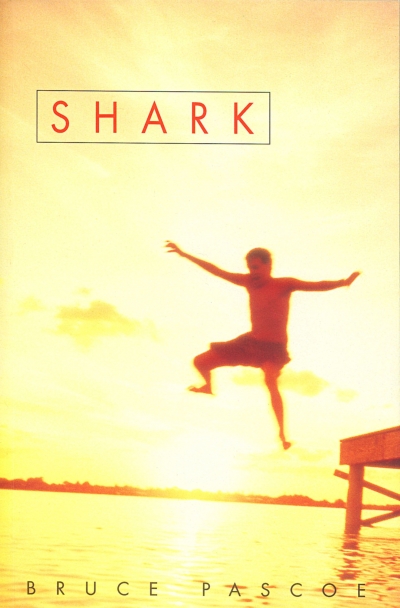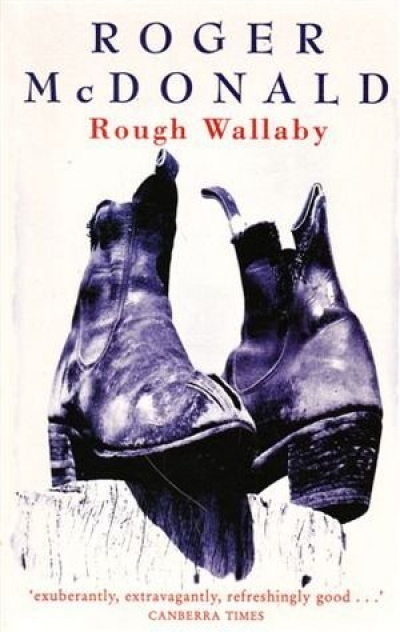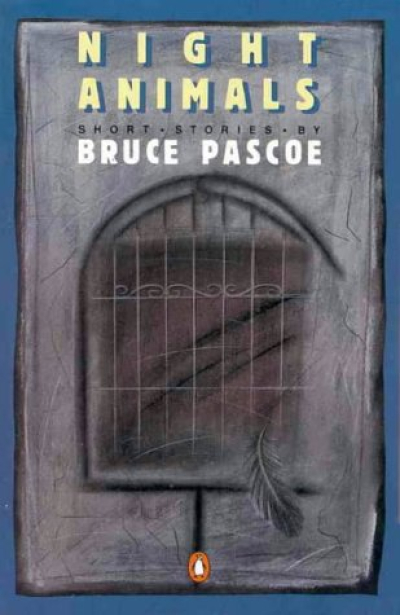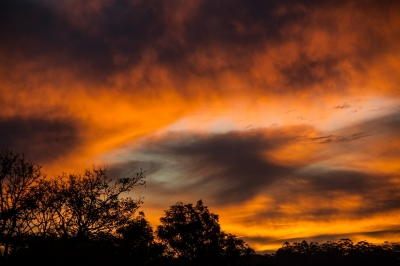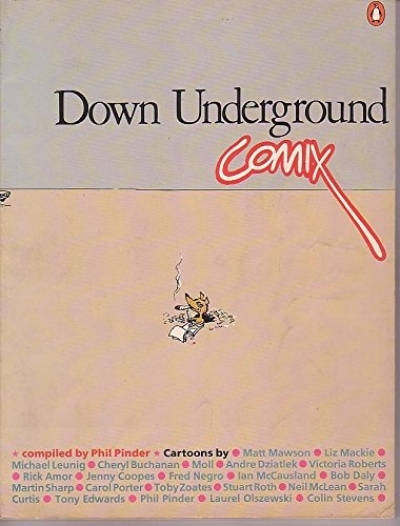Bruce Pascoe
James Griffin and John Wren
Dear Editor,
Some of your readers will be familiar with the problem. You set aside a few days to get to the National Library to pursue a research project. You obtain the manuscripts, order the material in the Petherick Room, and settle down to uninterrupted industry, when an avuncular bore with too much time on his hands buttonholes you and bangs on about his own project. You do not wish to appear uninterested, yet hope that the windbag will leave you alone and get back to his own table, perhaps even write the book that he rehearses so insistently as the precious minutes tick by.
... (read more)Figuratively speaking Shark reminds me of a pencil-and-paper game: change FOX into SHARK a letter at a time, so that the stepping-stones of words like the one to the other. For Fox is back, back from the independence struggle in West Papua and retired to Australia and the evocatively named coastal town of Tired Sailor, and by the end of the book Fox has become Shark, elegiacally linked by some of Bruce Pascoe’s most lyrical prose.
... (read more)Would it surprise you to know that a number of our well-known writers write to please themselves? Probably not. If there’s no pleasure, or challenge, or stimulus, the outcome would probably not be worth the effort. If this effort is writing, it seems especially unlikely that someone would engage in the activity without enjoying the chance to be their own audience.
... (read more)McDonald’s latest novel, Rough Wallaby, carves out a fascinating position in contemporary literature: an intricately constructed, fast paced yam drawing its narrative from a contemporary Australian myth, the Fine Cotton race horse switch. The intriguing aspect of Wallaby is that it makes no pretence at anything but a great big yam. The yam in Australia is in a position of disgrace, not among readers, but in the academic-critical club. The story is no longer literature, it seems. There have to be other surreptitious elements recognized and codified by the literary fraternity.
... (read more)It’s a favour to no-one to call him (certainly never her) ‘a modern Henry Lawson’ – as the back cover of Bruce Pascoe’s collection proclaims – because of the large and difficult questions that are raised. What does the name ‘Henry Lawson’ mean? ‘The Loaded Dog’, or ‘Water Them Geraniums’? The writer of humorous stories about the bush where life is animated by a huge and comic spirit, or of ones about living in the bush that leave you feeling dismayed and chilled to the bone? And who is this epithet aimed at? For some Lawson is the face on the ten-dollar note; for others he’s the successful Australian writer who went to England and failed to make any impression, returned, and then lived long enough to mourn his own decline as a writer, ending his life as a miserable drunk; for still others he’s one of the first writers you read at school.
... (read more)People produce art to explain and honour the life they know, and to many the short story is a logical medium for that expression. The more futuristic art gurus, however, believe that printed pages are destined for extinction as an art form and that the short story will be first on the Dodo list.
... (read more)During the 1970s, when Nation Review was a newspaper and the Labor Party was fair dinkum, this country spawned cartoonists like mushrooms in a paddock where cows have been defecating in a grand manner. The Vietnam war was on, but that didn’t stop the Melbourne Cup or the Grand Final, and it didn’t improve the economy as expected either.
We found lovely ways to get rid of some frightening chemical wastes, i.e., we tipped them on Asian forests: all the better to see you with.
... (read more)Bruce Pascoe reviews poetry by Brian J. Brock, Marjorie Pizer, Stephen K. Kelen, Dorothy Featherstone Porter, Pete Webb, Margaret Diesendorf, R. H. Morrison, and Terri Moore
Most of the poetry books reviewed come out in issues of less than one thousand, most of them well below five hundred. This must make Australia’s census of avid poetry readers no more than five thousand, or .002%. It is not surprising, then, that most published Australian poetry revolves around the process of writing for the poet’s poetic friends. This creates a very élitist form of communication and promises to do nothing to encourage more Australians to read poetry, because often the poetry written has nothing to do with the lives or interests of 99.998% of this country’s population.
... (read more)Frank Kellaway writes of the things which threaten the equilibrium of man, woman and people kind: napalm, gas chambers, pollution, lovers who go away, lovers who stay, motorcars and cruelty in general.
He can also write of things which have great beauty, but usually as a means of a contrast with the lesser works of the ape that stood up.
There is a poem to the Muse which seems to be obligatory in any collection. It is a rather incestuous habit of poets but one which Kellaway does not indulge to any serious degree. In fact a poem called ‘Moon Madness’ talks of the poet and his craft and is a rather beautiful poem full of some lavish images.
... (read more)
